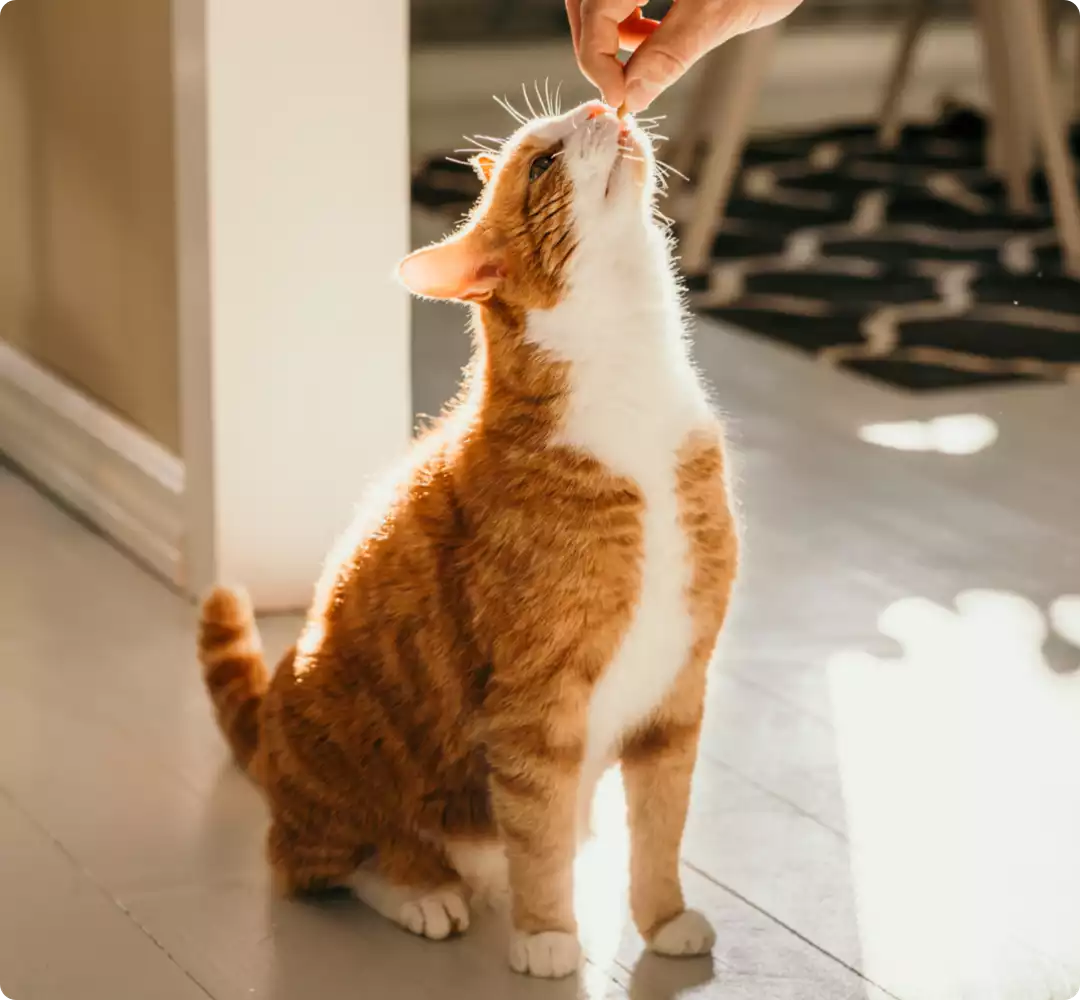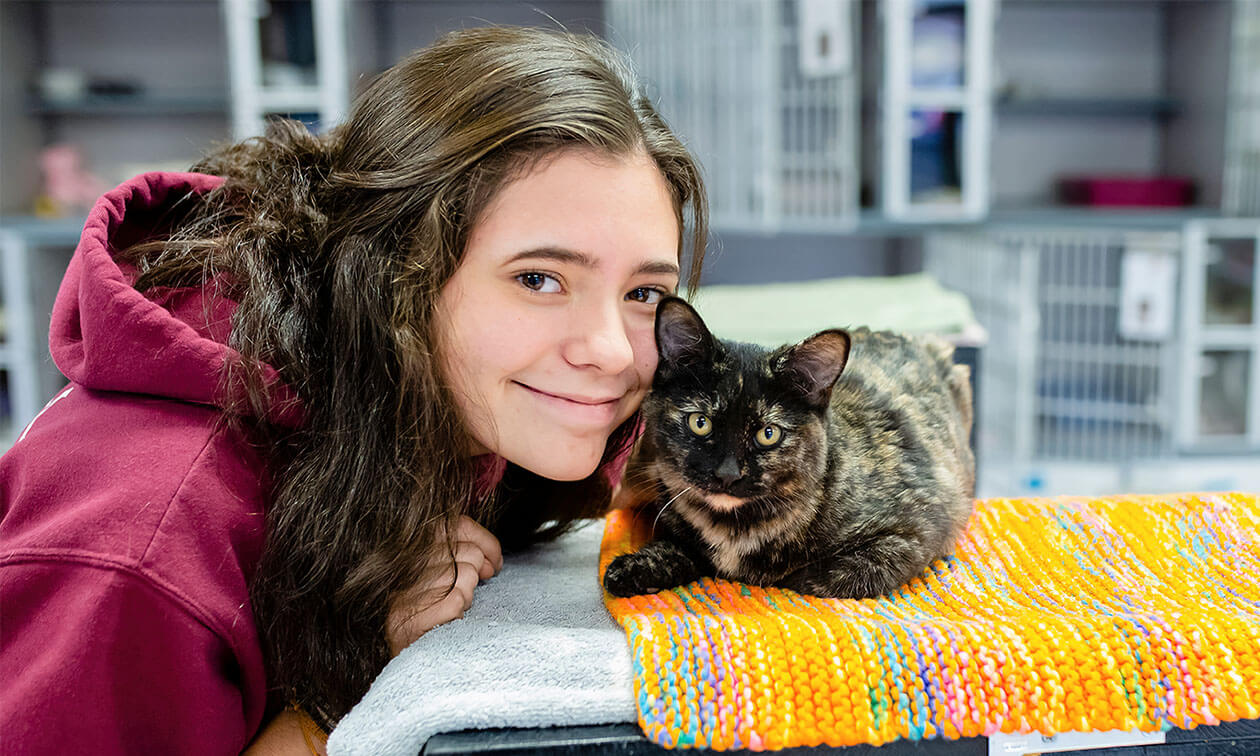
The Foundation to Your Cat’s Health
No matter how careful we are with our cats, it’s important to protect them from common diseases with these vaccines recommended by AAFP.*
*American Association of Feline Practitioners

RCP
Forming the Base of Protection for Cats of All Ages
The RCP, or FVRCP vaccine, protects against a series of highly contagious viruses that are often spread through close contact with other cats. In some cases, these diseases may be life-threatening but are easily prevented with regular vaccinations.
A highly contagious and lifelong disease that causes upper respiratory infections, pneumonia, and even vision loss. There is no cure and the virus can be reactivated due to stress or illness.
Highly contagious from cat to cat, this disease causes upper respiratory infections, ulcers in their mouth and gums, and lameness in their legs. Reinfection is also possible.
One of the most contagious and deadly diseases, particularly among social cats, it can cause
fever, poor appetite, vomiting, diarrhea, dehydration, abdominal pain, tremors and lack of coordination, brain infections, and heart damage. Thanks to the vaccine, distemper in cats is now uncommon.

FeLV
Protect Your Cat From Feline Leukemia
FeLV is a contagious virus, spread from cat to cat through saliva, blood, feces, or urine, that may ultimately lead to feline leukemia, a deadly form of cancer. Cats can get it from mutual grooming, fighting, or sharing food and water dishes. There is no cure for FeLV in cats.
- Symptoms may include:
Fever, loss of appetite, upper respiratory tract infections, or very few symptoms at all before tumors are formed.
- Treatment usually includes:
Supportive care, such as minimizing stress, proper nutrition, and treating secondary conditions as they occur.

Rabies
Protecting Your Family & Pets From Rabies
Rabies is easily spread to family members and can often be fatal in cats. Once your pet is infected, there are no treatment options available.
Typically we think of rabies showing signs immediately, but depending where a pet is bitten, it can take 3-12 weeks for signs to show.1
- Signs of rabies can include:
Anxiety, fever, uncoordinated walking, and lack of appetite. As the disease progresses, animals develop hypersensitivity to light and sound – they may also have seizures or become extremely vicious.
- There is no test for rabies in live animals
Rabies can only be diagnosed through testing of brain tissue of an animal who has died or been euthanized.
- Signs of rabies can include:
If an unvaccinated pet is exposed to a rabid animal, and then shows signs of the disease, euthanasia is the only option. If a pet is exposed but then does not show signs, long term quarantine may be an option.
Vaccinating your pet against rabies is the best defense for protecting them from harm.

References:
- Compendium of animal rabies prevention and control, 2016. National Association of State Public Health Veterinarians Compendium of Animal Rabies Prevention and Control Committee. http://nasphv.org/Documents/NASPHVRabiesCompendium.pdf. Accessed August 2, 2019.






